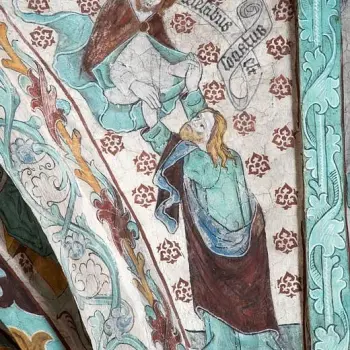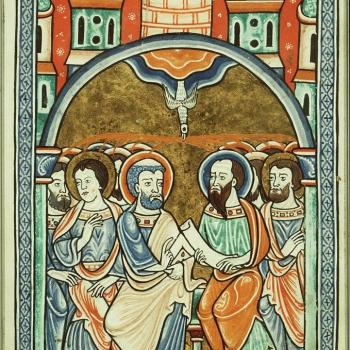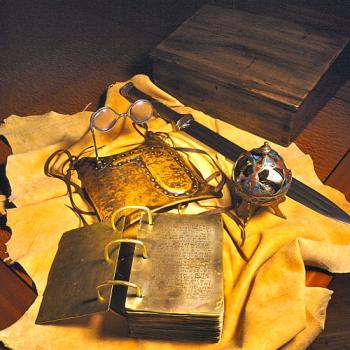After an epic showdown with idolatrous priests, the prophet Elijah learned that Queen Jezebel intended to kill him. Finding that something the soul needs in the wilderness.
But he himself went a day’s journey into the wilderness, and came and sat down under a : and he requested for himself that he might die; and said, It is enough; now, O Lord, take away my life; for I am not better than my fathers.
And as he lay and slept under a juniper tree, behold, then an touched him, and said unto him, Arise and eat.
And he looked, and, behold, there was a cake baken on the coals, and a cruse of water at his head. And he did eat and drink, and laid him down again.
And the angel of the Lord came again the second time, and touched him, and said, Arise and eat; because the journey is too great for thee.
And he arose, and did eat and drink, and went in the strength of that days and forty nights unto the .
And he came thither unto a cave, and lodged there;
Juniper Tree, Arise, Eat
I’ve loved this story for as long as I’ve seen the value in taking naps to restore and refresh. But this story speaks much more to me than deep, restorative sleep.
Elijah’s story also speaks of devastating loss, trauma, and unfettered grief.
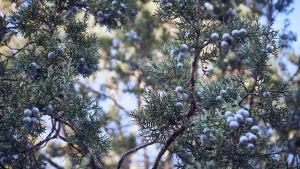
Mark Matousek’s When You’re Falling Dive: Lessons in the Art of Living details how tragedies impact persons. Without even sharing Matousek’s story preceding the following summation, most people have enough life experience to resonate on some level with this description of these desperate, determined women.
[They] seemed to be digging for their own lives in the desert, the parts of themselves that had been stolen, the layers of their own severed past, lost somewhere in the vast expanse. Without finding these relics, they could not grieve; without grieving, they could never feel whole. Quixotic as their plight might appear to the eye of reason, it made perfect sense to the soul. Souls seek retrieval and restitution; to the soul’s eye, all of our pieces are valuable, especially the broken ones (page 246.)
I see Elijah’s sitting in the wilderness as taking a moment to find the layers, grieving the losses, seeking restitution.
Elijah sat under a juniper tree—a tree that thrives in environments where other trees can’t survive. Elijah slept under a juniper tree—the tree anciently symbolizing the Mother goddess.
An angel laid hand(s) on him, adjuring Elijah to arise (Hebrew word meaning abide, make sure, uphold, accomplish, get up, ordain, raise up, establish, strengthen, be uprising, be made to stand) and eat (Hebrew word meaning burn up, consume, devour, dine, eat—literally or figuratively.)
The image of Elijah’s contest with priests of Ba’al penetrates this scene in my mind as I remember Elijah stood, declaring
Lord God of Abraham, Isaac, and of Israel, let it be known this day that thou art God in Israel, and that I am thy servant …
Then the of the Lord fell, and consumed the burnt sacrifice, and the wood, and the stones, and the dust, and licked up the water that was in the trench.
Those Elijah served acknowledged “The Lord, he is the God; the Lord, he is the God.”
And then, Elijah fled for his life into the wilderness.

We must accept heartbreak to be fully human. We cannot love without tasting some blood, nor connect without braving some chink in our armor. Those who are most spiritually naked, most transparent, are also those who see most fully. “Let the scar of the heart be seen,” said the prophet Mohammad. “For by their scars are known the men who are in the way of Love. Holy books encourage us to strip ourselves bare—to allow ourselves to be burned all the way through by our passionate quest if we wish to be whole. Avoiding life’s shadows makes the heart shallow.
In his play Orpheus Descending, Tennessee Williams describes the opposite of such surrender through the invention of a mythic white bird whose entire life is spent in the air—soaring, unsullied, shadowless—touching earth only once, to die. While the desire to avoid pain may be normal, denial as a long-term strategy is a cold, narrow way to live. We may be dodging bullets through extreme self-protection yet find ourselves withering in our distant aeries, too—safe yet only half engaged—armorming our unbroken hearts while remaining secretly loveless, invulnerable, and dry. (Mark Matousek, When You’re Falling Dive: Lessons in the Art of Living, page 249.)
Finding That Something the Soul Needs in the Wilderness
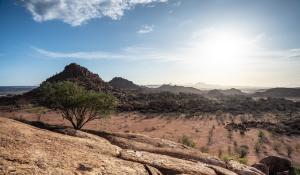
In a similar era where the love of many waxes cold with men’s hearts failing them for fear, Elijah’s soul-exhaustion feels so familiar. I’ve been in the wilderness clinging to a single, green tree, willing, in the exhaustion of the conflict, to die, to escape, to do something else, to get a different answer, to follow my own path, to feel completely safe, to rest in the arms of Jesus, even in darkness.
I am Jesus Christ, the . I am the same that came unto mine … I am the which shineth in ….
Among the many favorite takeaways that I’ve taken away from this story is that Elijah gets up.
And he arose, and did eat and drink, and went in the strength of that days and forty nights unto the .
There is something that soothes souls, that brings restitution, that allows us to strengthen our spines while keeping our hearts open and softened. We have the capacity to find that something that our soul needs.
Elijah’s story shows me that even during emotional and spiritual drought, and while resting in barren wildernesses, I can find that something my soul needs, even when my soul isn’t entirely whole yet.




